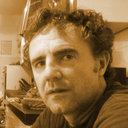Sleep disorders in spinal and bulbar muscular atrophy (Kennedy's disease): a controlled polysomnographic and self-reported questionnaires study.
Keywords
Abstract
No data are available regarding the occurrence of sleep disorders in spinal and bulbar muscular atrophy (SBMA). We investigated the sleep-wake cycle in SBMA patients compared with healthy subjects. Nine SBMA outpatients and nine age-matched and sex-matched healthy controls were evaluated. Subjective quality of sleep was assessed by means of the Pittsburgh Sleep Quality Index (PSQI). The Epworth Sleepiness Scale was used in order to evaluate excessive daytime sleepiness. All participants underwent a 48-h polysomnography followed by the multiple sleep latency test. Time in bed, total sleep time and sleep efficiency were significantly lower in SBMA than controls. Furthermore, the apnea-hypopnea index (AHI) was significantly higher in SBMA than controls. Obstructive sleep apnea (OSA: AHI >5/h) was evident in 6/9 patients (66.6 %). REM sleep without atonia was evident in three patients also affected by OSA and higher AHI in REM; 2/9 (22.2 %) SBMA patients showed periodic limb movements in sleep. The global PSQI score was higher in SBMA versus controls. Sleep quality in SBMA is poorer than in controls. OSA is the most common sleep disorder in SBMA. The sleep impairment could be induced both by OSA or/and the neurodegenerative processes involving crucial areas regulating the sleep-wake cycle.




